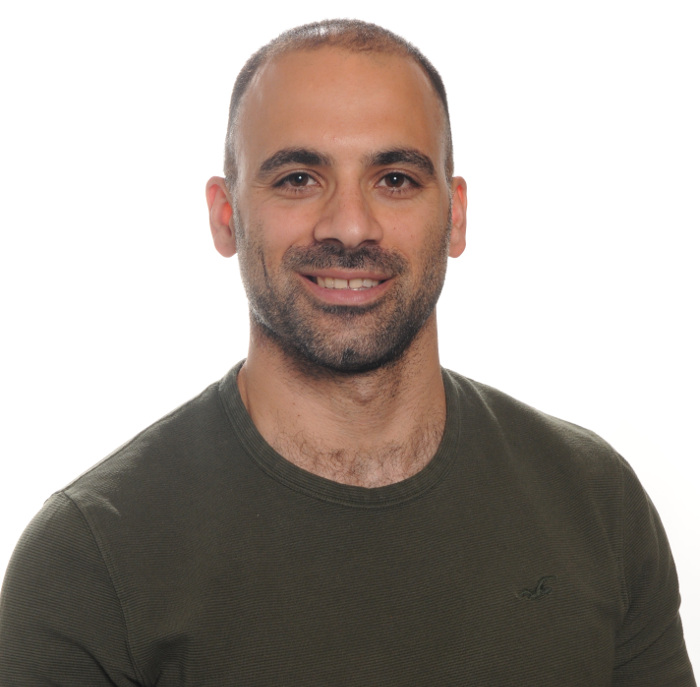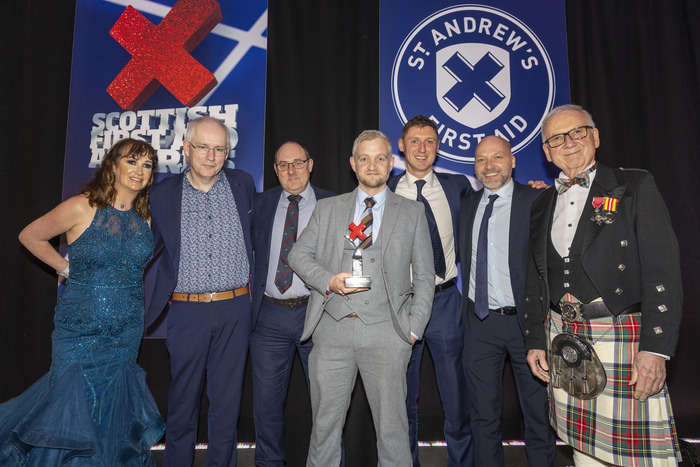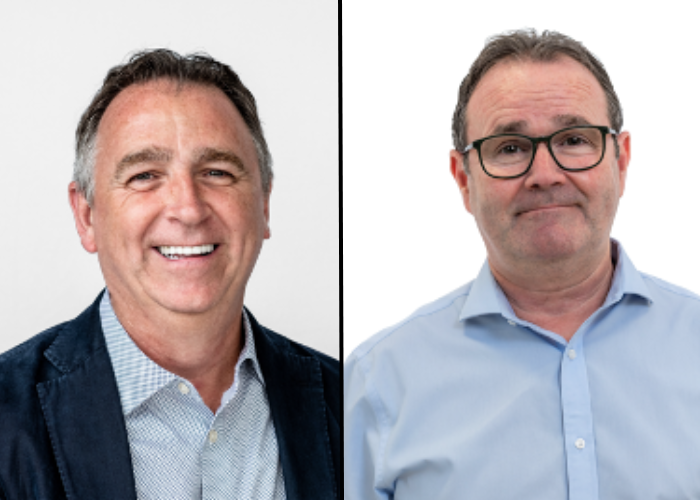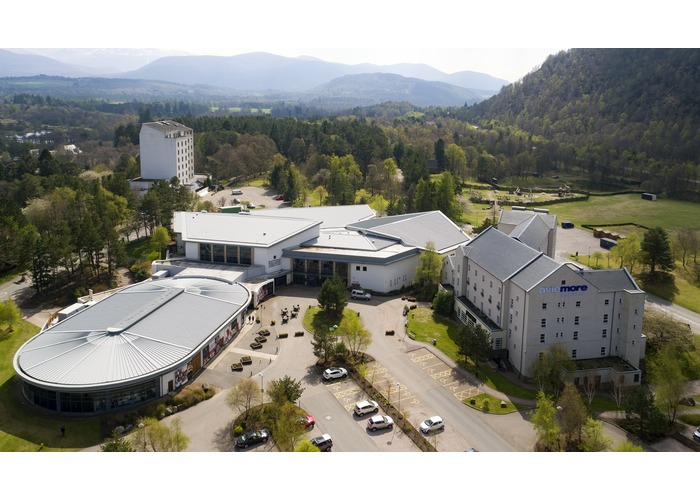Insiso, Aberdeen-based software development company, Managing Director – Arrash Nekonam
What does your company do?
At Insiso we provide bespoke software development services to a wide a variety of industries. Our understanding of technology, combined with an awareness of business process, allows us to define the best solution for any business requirement.
With an obsessive focus on modern design, enhanced user experience and high-quality development, we are proud to claim that our technical expertise is second to none. We pride ourselves on our ability and dedication to creating solutions that resolve our clients’ business problems in the smartest and fastest way possible.
What do you do there / what is your role?
I am both the Managing Director and Senior Solutions Architect. My responsibility is primarily in the running of the day to day business: account management with our portfolio of clients, as well as management of the project teams and all our commercial engagements. As Senior Solutions Architect I am also involved in an operational role, delivering project work for our clients.
If you started the company, what was the aha moment that led to the company founding?
While working for many years as a software developer, I had always aspired to lead my own team. The key defining moment for me was when I realised that software development projects could be delivered in a far more transparent and engaging way than was often the case. That realisation drove me to establish Insiso as a vehicle for greater engagement and openness with clients in delivering projects.
Why did you launch the company (if appropriate)?
I had reached a crossroads in my professional career where there was no obvious advancement This, coupled with my personal aspirations to build an organisation around new agile software development principles, led to the launch of the company. My first-born son also came along at the time, which gave me a sense of renewed drive and direction.
Where did you get assistance when you started?
Initially I was given a small loan from my father to set up the company. Thankfully as it was just myself initially using a hot desk, the overheads were fairly minimal, and I was able to start operating with those initial funds.
Give us a brief history of the growth of the company
Insiso started in late 2010, initially with just myself acting as a contractor to deliver software solutions to an initial client base I had formed from my years working in the industry. These started out as small development projects, but then grew into more substantial developments through our sub-contract relationships to a larger client base in 2012.
In 2012 we hired our first members of staff, growing the team with three development team members. We also expanded our portfolio across industries such as oil and gas, medical, retail and legal, all the while building solid relationships and expanding our network.
From 2014 onwards we transitioned from delivering ad-hoc software development projects lasting from 1-3 months, to long-term engagements involving retainers and ongoing development. This was a turning point for the organisation, as the regular monthly revenue allowed us to establish a firm foundation for growth. From 2014 onwards we started to expand our team as well as our market reach.
Fast forward to 2020 – we now have over 18 team members within the UK and Europe, made up of developers, testers and designers working together to design, develop, deliver and maintain a wide variety of web and mobile solutions to our extensive customer base. With clients across a wide variety of industries locally, nationally and geographically, Insiso has become an established organisation with a renowned reputation for delivering bespoke software solutions.
Have you taken any external funding? If so from who and when?
Insiso has had no external funding to date. Fortunately, we have managed to organically grow the organisation based on our own revenue to date.
So, what does it look like now with regard to staff and turnover?
Just this past year we had over 18 team members, with a turnover of approximately £880,000 for 2019/2020.
What’s the difference between when you started and now in your marketplace?
Technology, unsurprisingly, has moved on a great deal. For one thing, the platforms on which we delivered our solutions in the early days are very different now, and we have had to adapt our capabilities to meet those trends. Thankfully we have always invested heavily in our ongoing research and development, and we encourage our team members to explore unchartered territory as much as possible to stay ahead of the curve.
What is your target market – Who is buying your product / service?
I wouldn’t say we have any particular target market; our services could extend to any industry within any geographical region. We provide services to a variety of clients, from start-ups taking their visions from concept to implementation, to large global enterprises driving more automation, efficiency and visibility.
What is your background?
I graduated from Aberdeen University with a BSc Hons in Computing Science in 2006 followed by a post-graduate MSc in E-Commerce in 2007.
From 2007 until 2010 I worked in a variety of software development roles, and was able to take on a senior role relatively early in my career. That gave me the opportunity to engage on the frontline of the delivery, which proved invaluable experience when I set up my own company.
What are your goals for your business?
The overall goal is to grow a formidable business with distributed project teams operating in key regions such as UK, Europe, Middle East, Southeast Asia and the United States. Our aim is to further increase our capabilities in each of these respective regions, with development cells operating collaboratively and consistently to deliver our software development services in our signature style.
What are your biggest current challenges?
The biggest challenge has been managing and running the business, whilst also playing my part as a member of the software development team operationally. Over the years I have had to ensure that more and more is delegated to my competent team members, so reducing the bottleneck and pressure on myself. However, I’m aware that there is still more to be done in terms of allowing me to step out of tactical activities into more strategic ones.
What has been the biggest challenge so far?
I would say the most recent events resulting from the COVID-19 pandemic have posed some of the biggest challenges we have had to face, in common with every other organisation reeling from the impact it has had on the economy. Thankfully the impact on us has been mitigated due to the fact that, as an organisation we were already set up to engage and work remotely. However, the impact on our clients has made us re-think and alter our commercial approach to ensure that we can still offer our services where needed, despite the turmoil in the economy.
What do you do outside work?
I do a lot of fitness both at my local gym but also with a fitness group which originated from British Military Fitness, now referred to as Granite City Fitness. I am also an active member of the Iranian community in Aberdeen, and often support and arrange various annual events such as the Persian New Year celebration. I also try to spend most of my free time with my wife and three kids at home.
What do you know now that you wished you had known earlier?
I have realised over the years that I can let go of a lot of responsibility. Initially I felt I had to be involved in every aspect of the work conducted at Insiso. However today, whilst I still have visibility of it all, it has been really refreshing to allow my team to take the lead on this, and allow me to step back.
What’s the secret to good leadership?
I believe that good leadership is based on the ability to inspire others to aspire to be the best that they can be, and to achieve both their personal objectives and those of the team. Effective communication skills are paramount to ensure that trust is built with your team members, and that they feel supported by you. When challenges and difficulties arise, it is important as a leader to reduce the impact of those on your team, and to help them overcome these challenges by focusing on the solutions and not the problems.
Even though I am ultimately accountable as the head of the organisation, I regard myself as simply another member of the team. I believe this has been key in maintaining a strong network of relationships at Insiso based on honesty, trust and reliability.
Where do you see the company in five years?
In five years’ time we hope to not only have expanded our operations into other regions by growing our geographical teams, but also to build our own intellectual property through the development of our own licenced software development products that can add further value to the business.
How can the Scottish start-up/entrepreneur landscape be improved to help more businesses start up and grow?
Investment in technology is crucial, as well as diversification in our industries, particularly in the North east of Scotland, where there has been a high dependency on the energy sector. There needs to be a long-term strategy to promote alternatives to this.
There are a number of funding avenues available to businesses today through Scottish Enterprise and other organisations such as the Oil & Gas Technology Centre. However, I would like to see further initiatives like this being made available not only seasoned businesses, but also to up-and-coming entrepreneurs.
The other main challenge for any start-up breaking into the market is access to the customer base. I feel there could be substantial improvements in linking new companies with potential opportunities. For example, I would like to see a more transparent tendering process in the public sector in particular, but also in the private sector. This would enable smaller organisations to take part and potentially secure new business, instead of the larger, more established companies hoovering up all of the market opportunities that arise. It would also promote healthy competition within the marketplace, which can only benefit the potential buyers of these products and services.





